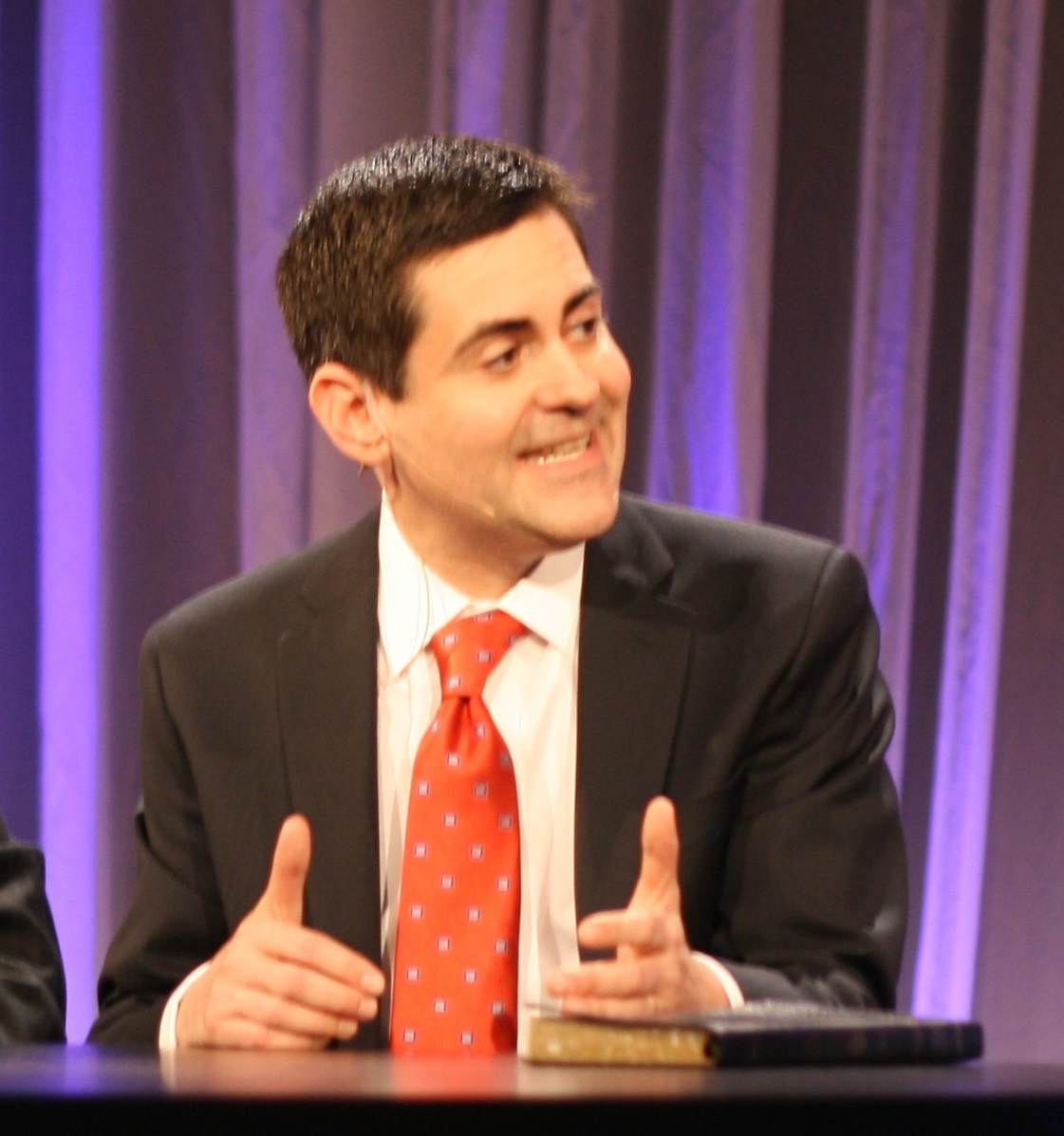By Bob Allen
The Southern Baptist Convention’s top spokesman for public policy said March 5 that in his first months on the job he is working closely with his Mormon and Roman Catholic counterparts on religious-liberty concerns.
“These days, anyway, it seems that every single day I am in contact with my equivalent positions in the Roman Catholic Church and the Church of Jesus Christ of Latter-day Saints,” Russell Moore, head of the SBC Ethics and Religious Liberty Commission, told students and local pastors at Midwestern Baptist Theological Seminary in Kansas City, Mo.
“We disagree on a whole lot of things, but we agree on protecting religious liberty and freedom of conscience,” Moore said in an interview posted on video at Seminary President Jason Allen’s personal website.
 “So we’re working together all the time to say ‘how can we build a coalition to support religious liberty?’ So every day we have some sort of physical meeting or telephonic meeting. We’re together a lot.”
“So we’re working together all the time to say ‘how can we build a coalition to support religious liberty?’ So every day we have some sort of physical meeting or telephonic meeting. We’re together a lot.”
Moore, a former professor and administrator at Southern Baptist Theological Seminary in Louisville, Ky., who assumed the post of president of Southern Baptists’ agency dedicated to moral, public policy and religious-liberty concerns last June, described his style of relating to politicians and members of the media with whom he disagrees.
“I’ve had, for instance, very sharp disagreements with President Obama on a number of issues, from abortion to marriage to the HHS mandate and those sorts of things, and it would be easy for me to kind of give myself over to a sort of outrage directed toward him,” said Moore, whose irenic approach is often contrasted to the more outspoken posture of his predecessor Richard Land.
“It would be easy, because it would sometimes feel kind of cathartic for me to do that, and also I could just rev up a whole bunch of people to feel outrage at the president together,” Moore said. “But I don’t think that would be faithful to Christ, and I don’t think it would be faithful to what God has called me to do.”
Land, who retired last year after 25 years at the ERLC and now serves as president of Southern Evangelical Seminary and Bible College in Matthews, N.C., was a frequent and vocal critic of President Obama. Land endorsed Obama’s Republican challenger Mitt Romney in 2012, calling it the most important American election since before the Civil War.
Moore said he has felt welcome at the Obama White House, even when discussing issues about which they disagree. While Obama differs with them on many issues, Moore said he believes the president understands who Southern Baptists are and what they believe better than the media, who often have little understanding of why evangelicals care about issues like same-sex marriage and the sanctity of human life from conception.
“So what I have to do on these issues on which we disagree, I still have to find ways to honor him as a person created in the image of God,” Moore said, “and as someone, who in the sovereignty of God, God has allowed to be seated in this position of authority.”
Moore, criticized early on by the Religious Right for saying that younger Southern Baptists are turned off by partisan politics that energized Land’s generation, said he views his job, with offices both in Washington and Nashville, Tenn., as twofold.
“The first thing is to seek to equip churches to think about what it means to follow Christ with all the ethical decisions that have to be made,” he said, “everything from marriage and parenting to how do we think through end-of-life decisions to the whole range of what it means to equip people to follow Christ.”
The second, he said, is “to speak for the churches to the outside world — in terms of government, when it comes to religious liberty, when it comes to the courts, when it comes to the media — all of those various ways of speaking why Christians believe the things that we believe and why we apply the gospel the way that we do.”
